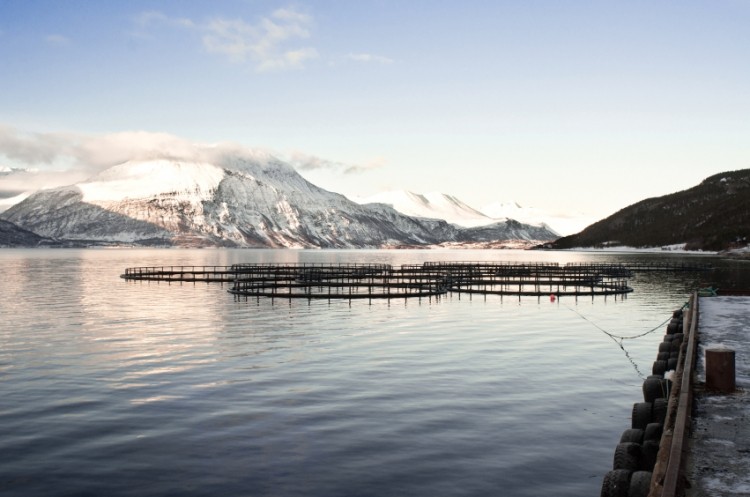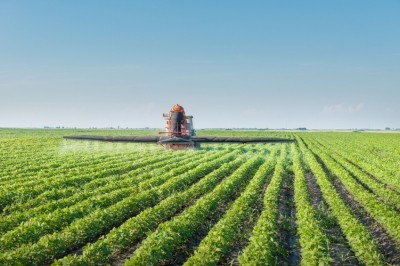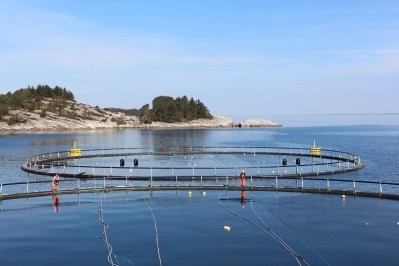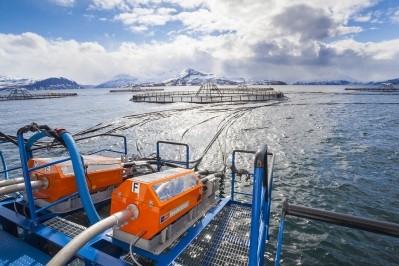Plant based salmon feeds could be lacking in nutrients

Salmon feed formulations have changed dramatically the last 10–15 years – previously they were composed of fishmeal and fish oil, but most commercial salmon feeds now contain more than 70% plant ingredients, according to NIFES data.
Plants contain anti-nutrients that can cause the fish to absorb less of the nutrients in the feed; salmon fed plant based diets, therefore, need different quantities of vitamins and minerals, said Kristin Hamre, senior scientist, NIFES.
She said that even if the plants contain these nutrients, the fish are unable to absorb them to the same extent as they would from marine feeds. Plant materials contain lower levels of some nutrients than fishmeal and fish oil do, she added.
Arraina project
NIFES was part of the EU project, Arraina, which began in 2011, and reported its final results to the EU Commission earlier this year. One of the goals of that initiative was to find out the quantities of micronutrients different species of fish need now that the composition of the feed has changed.
Norway and Scotland collaborated on the part of the project that concerned salmon, while feed manufacturer, BioMar, and independent research institution, GIFAS, were project partners.
Hamre said, as part of the trials under Arriana, the researchers looking at salmon nutrient requirements carried out both short-term and longer-term studies in both freshwater and seawater.
“The longer term studies in Scotland more or less confirmed the findings we saw in our short-term – three month – trials.
“While we have published some of our findings in peer reviewed journals, we are still in the process of publishing our remaining data. Our findings on mineral requirements will likely be released in six months’ time,” she told us.
The scientists said they have seen that salmon need four times as much niacin as previously recommended, and twice as much vitamin B6 under the new, plant based feed formulations.
Hamre said that their research showed the optimal inclusion level for vitamin C in plant based salmon diets is 190mg per kilogram of diet as opposed to the 20mg/kg recommended under the NRC, 2011 tables. “We found that saturation of vitamin C in the body occurs at 190mg/kg.”
She said industry practice is varied in relation to vitamin C use with some producers including up to 400mg/kg of the feed to promote stress alleviation. “There is no upper limit for vitamin C or vitamin E inclusion levels.”
Hamre said their research into selenium levels in plant based salmon diets showed no change was required to NRC, 2011 recommendations.
Vitamin B study findings
In a study published in the journal Peer J, Hamre et al assessed current recommendations for B-vitamin supplementation when Atlantic salmon are fed diets where the majority of proteins and lipids come from plants.
Biotin and thiamine levels were sufficient in plant based diets; no addition beyond the feed ingredients seemed to be necessary, they said.
However, they found that the other B-vitamins should be added at or above NRC, 2011 recommendations for salmonids to optimize growth, hinder change in liver lipid deposition, and saturate biomarkers specific for each vitamin.
Therefore, the researchers’ updated recommendations for Atlantic salmon parr and post-smolt stages is a diet with levels of Niacin at around >110 mg/kg (current recommendation 1–10 mg kg−1, NRC 2011), Riboflavin 10–12mg kg−1diet (NRC, 2011; 4–7 mg kg −1), Cobalamin 0.4 mg/kg −1 diet (NRC, 2011; 0.02 mg kg−1), Folate 3.3 mg kg−1 diet (NRC, 2011; 1–2 mg kg−1), Pyridoxine 10 mg kg −1 diet (NRC, 2011; 2–16 mg kg −1), and Panthotenic acid 22 mg kg−1 diet (NRC, 2011; 20 mg kg−1).
Source: PeerJ 4:e2493
Published online ahead of print: https://peerj.com/articles/2493/
Title: Atlantic salmon (Salmo salar) require increased dietary levels of B-vitamins when fed diets with high inclusion of plant based ingredients
Authors: Hemre G, Lock E, Olsvik PA, Hamre K, Espe M, Torstensen BE, Silva J, Hansen A, Waagbø R, Johansen JS, Sanden M, Sissener NH.











